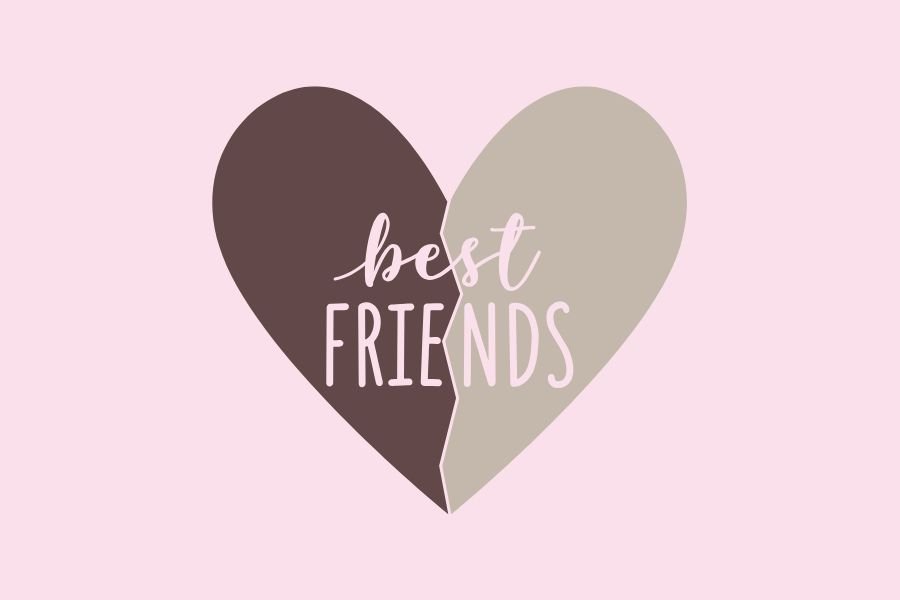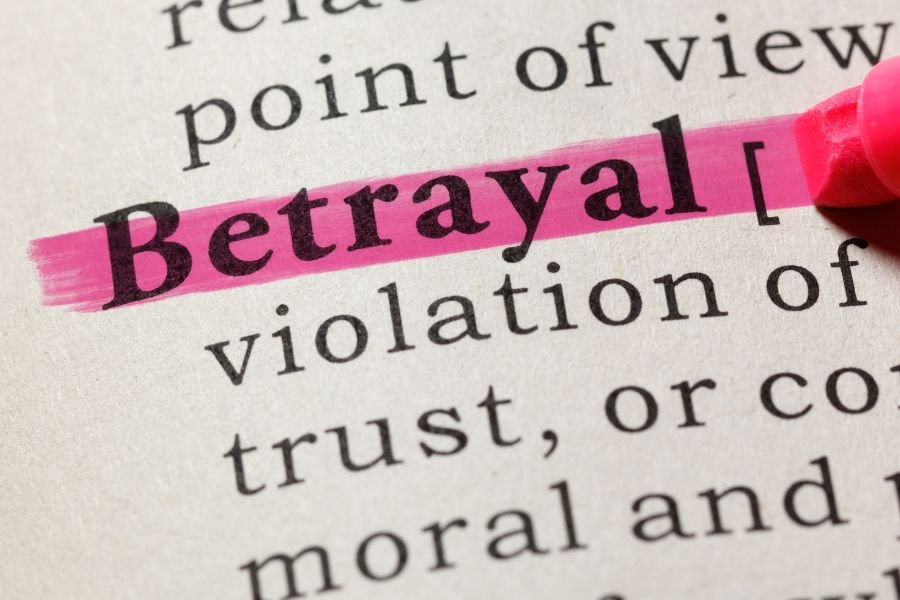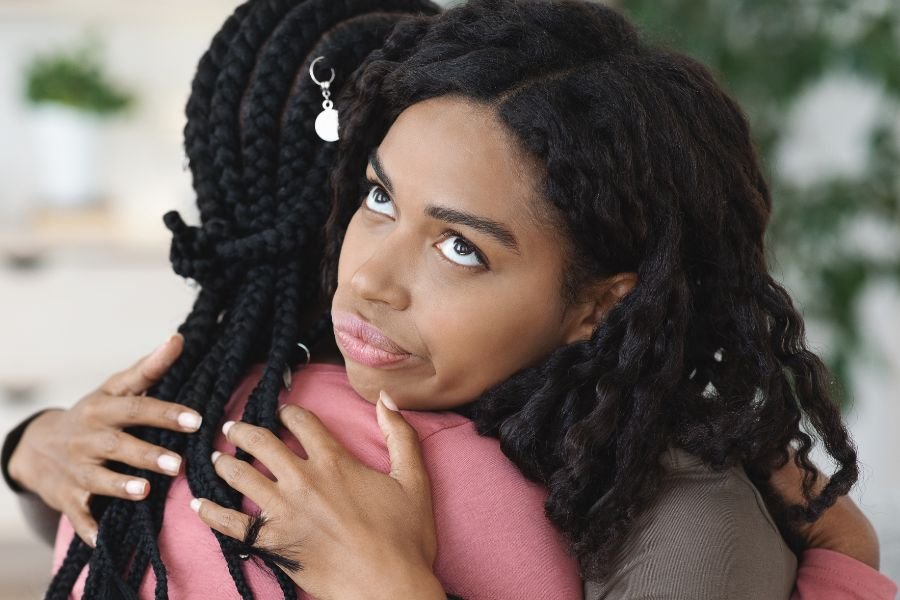HOW TO RESOLVE ISSUES WITH YOUR FRIENDS
Picture this: You and your friend just had a weird text message exchange that has left you feeling both sad and annoyed.
You just can’t seem to get over feeling misunderstood and disregarded by someone you call a friend.
Someone you share intimate details of your life with, your dreams, your goals, along with your insecurities, vulnerabilities, and the like. So how could this person not get it?
Friendships are no stranger to conflict, yet often get overlooked or mishandled. Why is that?
3 Reasons Friendship Conflict Gets Ignored
1| People tend to devalue friendship conflict
Unlike partner relationships, people deem friendship conflict as less important because it’s not their significant other or spouse which whom they likely spend most of their time.
The thought becomes, if this disagreement won’t interrupt my day-to-day activities, then I’ll get to it later, or not at all.
2| People take their friendships for granted
This is especially the case when some people have been friends for a long time. Assumptions that the other person will “get over it” are made, because they wouldn’t dare throw away the friendship over a little disagreement.
3| People are afraid to disagree
The other side of the coin is that some people tend to ignore the conflict to prevent “stirring the pot.” These people will bottle up their issues, not even realizing resentment could be building up because of it.
None of these points weigh greater than the other, and all of them can be cause for silent divides or big blowups in friendships.
Before we discuss what healthy conflict resolution should look like, let’s discuss what you should absolutely NOT do
DO NOT yell at each other.
No one has the right to raise their voice at another human being in general, but it is especially counterproductive to do so if you’re trying to fix a problem with a friend.
Yelling for some people can be triggering and cause them to go into defense mode to protect themselves. It’s also demeaning and can make someone feel small and unsafe.
DO NOT disrespect one another.
Okay so you’re having an issue with your friend and now all of a sudden, she’s a bitch?
You may not like the actions or the words coming from your friend, but disrespecting her is unnecessary and inappropriate. This is someone you say that you care about, don’t call her out of her name or try to put her down because you don’t agree.
DO NOT hit below the belt.
This is knowing sensitive information about the friend you’re having a disagreement with, and using it as a weapon during the fight.
It’s like the ultimate blow, because not only is trust broken, but it’s an attack on an area that you know is weak. You’re being intentional, and NOT in a good way! You’re trying to hurt that friend for the sake of being “right.”
Whew! Those things are awful, right?
So, what does healthy conflict resolution look like in friendships?
First, know that there are two different ways that conflict gets handled, and that’s when the conflict is direct and when it’s indirect (aka someone is being passive-aggressive). Let’s get into it.
7 Steps to Handle Direct Conflict
1| Listen
This means you’re not talking; you’re not thinking about what you want to eat for lunch, you’re not preparing what you’re going to say back, and you are focused on their words and body language attentively.
2| Take a moment to process
Don’t feel rushed to respond. When people are talking about their feelings they tend to get wordy, and that’s a lot to take in. Give yourself a minute. Combine like statements in your mind and analyze what you took from them.
3| Repeat their POV
Now that you’ve analyzed their comments, say it back to them for clarity to make sure what you gathered is what they meant.
4| Identify their root issue
Y’all are probably not disagreeing about what you think you are. For example, she may get annoyed that you never text back; but she’s probably not really upset about not receiving text messages from you.
It could be that she feels like you forgot about her or that you don’t care. This step could potentially unveil some insecurities, logical or not, but either way, their feelings should be handled with care.
5| Communicate how you feel
Now it’s your turn to talk. Make sure that when you do, you emphasize how their words or actions made you feel instead of what they did. Saying “this action made me feel XYZ” fairs much better than “you did XYZ to me.”
6| Identify your root issue
Same sentiment as step #4, now just from your perspective. Dig deep and be honest with yourself about why you felt the way that you did.
Ask yourself questions like, “have I felt this feeling before? If so, what triggered it?” Soon you’ll start identifying a pattern and then be able to communicate why it hurt you the way that it did.
7| Find a middle ground or a way to agree to disagree
This isn’t just letting something slide or sweeping it under the rug. Your feelings are valid. And so are theirs. You don’t have to agree with their perspective, but you do have to acknowledge and empathize with how the situation made them feel.
What if finding a middle ground doesn’t make you feel better?
This is totally possible, because it hurts to be misunderstood or feel like you weren’t being heard. If this conflict is with a friend that loves you, despite how it may look in the moment, they will have heard you and will handle things differently in the future, consciously or subconsciously. Trust that they don’t want to hurt you.
4 Steps to Handle Indirect Conflict
1| Ask how they are doing
I know this may seem like an unusual idea, but sometimes it’s not you at all, it’s them. They have a lot going on in their lives, and by default, your interaction with them set them off way more than it should have.
While your feelings may be hurt, sometimes taking a step back and asking about them may give you answers you didn’t know that you needed.
2| Get clarity
If you’ve checked on them and they’re like “I’m fine,” then ask follow-up questions to get clarity on the disagreement.
These can look like, “Did I do or say something to offend you?” or “The interaction we just had felt a little uncomfortable to me, what did you think about it?”
To some, these questions may seem lame and like they are doing too much, but asking at the moment can alleviate a lot of tension in the long run.
3| Give space, but don’t let it linger
Maybe that friend doesn’t want to go deeper into the conversation at the moment and needs a minute to process it.
Give them space, however, don’t let so much time pass that a proper resolution was never had. They have to respect your process as well.
4| Reevaluate
If you’ve tried all of this and they still weren’t very receptive, it may be time to reevaluate the friendship.
No, not every disagreement means the end of a friendship. Reevaluation can simply help you determine how you will move forward with that friend in the future in the event a similar situation happens again.
LET’S TALK ABOUT REAL FORGIVENESS
I don’t mean where you are obnoxiously telling your friends you forgive them to appease them. I mean real forgiveness that comes from actions.
It’s when the thought of the conflict comes to your mind, and you are intentional about focusing on the positive outcome you’ve reached together, instead of the initial feelings of the disagreement. It’s also when you genuinely put the disagreement behind you, and do not repeatedly bring it back up.
If you allow yourself to meditate on the sore spot, you will find yourself getting upset and having negative feelings towards that friend.
However, if you reflect on how you two worked through the conflict together without playing dirty, listened to each other, and agreed to a solid compromise, you’ll feel stronger about that person. You will be proud that you all were able to have a disagreement and handle it like people who care about each other and not like enemies.
If I am being honest, I am the friend who falls into that “people are afraid to disagree” category, so bringing up issues I have with a friend has been a real challenge for me.
However, I’ve had to learn not to cross my own emotional boundaries by ignoring an issue. I’ve had to put on my big girl pants and have hard conversations (some even done with my voice trembling), out of respect for myself and for the friendship that I love.
Conflict sucks. But it’s going to happen because no two people are the same, so the best thing any of us can do is try to manage it in healthy ways, with grace, respect, and love.
I’d love to hear about other ways you and your friends handle conflict in the comment box below.












